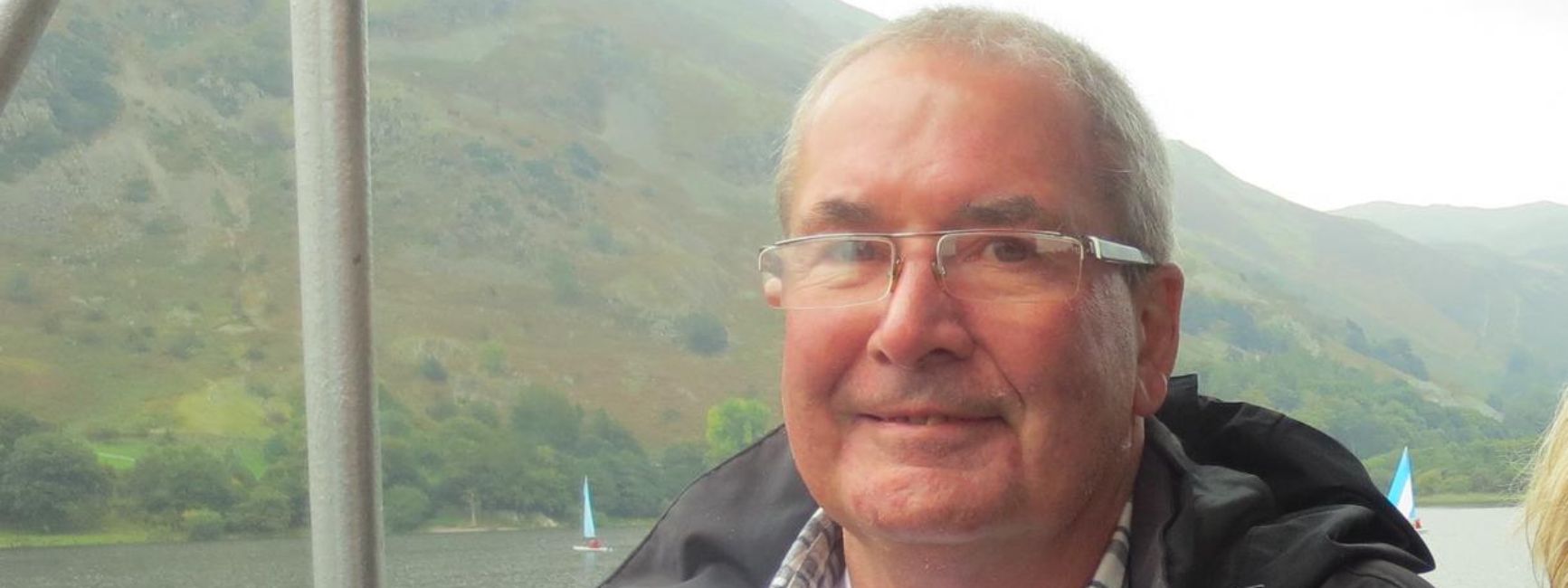Shropshire-based Chris was a month away from retirement when he was diagnosed with a glioblastoma (GBM) in October 2016 after suffering a seizure whilst driving. He had surgery followed by radiotherapy and chemotherapy treatment but the cancer was too aggressive. Chris died in March 2018, aged 64. Despite surgery to remove an acoustic neuroma 20 years earlier doctors say the two are not related.
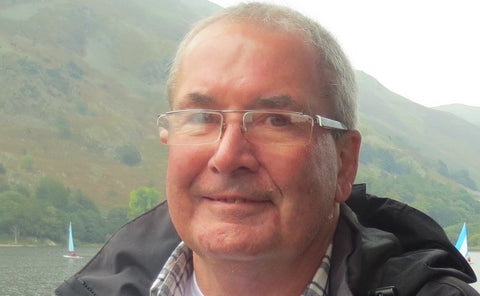
Here is Chris’ story, as told by his wife, Jill…
We never noticed any symptoms before Chris had a car accident on 6 September 2016. He went the wrong way around a traffic island and collided with the back of a parked lorry whilst driving back from work. It was a journey he had done time and time again.
Luckily no one was hurt, Chris walked away with a few cuts and bruised chest. Paramedics thought he might have blacked out behind the wheel and encouraged him to go to the hospital to be checked over.
For someone who had always worked in high pressure jobs, including working as a heavy vehicle design engineer and more recently a facilities operator, he’d always coped well with stress. This was out of character for him and very alarming.
Once I arrived at the scene, I promised the emergency services I’d go with Chris to the GP. He never liked fuss and didn’t want to bother with the hospital. Our doctor was incredibly attentive and instantly realised something drastic was wrong with Chris and referred us to Princess Royal Hospital in Telford for an MRI scan which showed a tumour growing on his brain.
Twenty years previously at The Priory Hospital in Edgbaston, Birmingham, Chris had an acoustic neuroma removed during a nine-hour operation. Despite leaving him deaf in his right ear and with compromised balance, he led a normal life. I’ve been told the two are a pure coincidence.
Results of the MRI went to our GP and she explained the urgency of Chris’ diagnosis and we were told to go to Stoke Hospital where we were told Chris had a glioblastoma (GBM).
“The neurosurgeon explained that Chris would have an operation to remove the cancer from his brain to extend his life. Without it, he would die in a few months.”
We were absolutely shattered. It was like a bomb had hit us. Chris was very quiet – which was most unlike him. He soon spoke and accepted the hand he had been dealt and then start to process the situation.
On 1 November, Chris had a six-hour operation which compared to his surgery decades earlier was much shorter despite this time the mass being cancer. The wait to see him again felt agonisingly slow.
In the months that followed surgery, Chris was pragmatic. He updated his will to ensure plans, including finances were in place; he wanted to make sure I would be taken care of after his death. We had many frank conversations about what he was organising, although they were never conversations I wanted to have with him, he made sure we did.
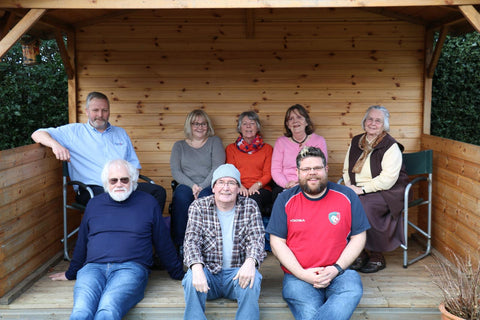
He also made a list of things he wanted to do whilst he was still alive. It was more of a bucket list of destinations. We many of his favourite places in the UK, including the Lake District. We had to cancel our trip to New Zealand and so my brother came over to see us here. We went to Cyprus and he managed to do almost all he wanted.
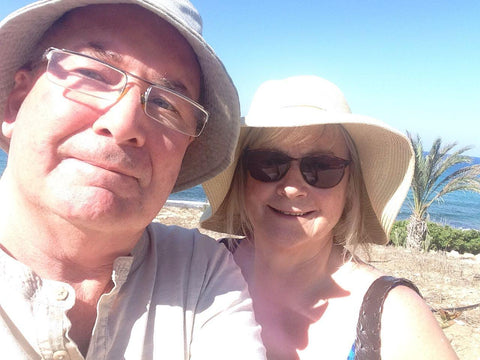
Chris saw through the full course of radiotherapy but only two rounds of chemo which finished in November 2017. A date I term as when we really lost Chris because his cognition became impaired. He struggled with logical thinking and couldn’t hold conversations. It was clear the tumour had advanced and a follow up scan confirmed it had diffused to the back of his brain.

He was offered PCV chemotherapy but we were warned the side effects were harsh and would make Chris feel poorly and physically sick. The medical team couldn’t guarantee it would help him live longer and it certainly seemed that it would have compromised any quality of life he had. It was obvious Chris’ body was tired and weak, he had no fight left in him and we ceased all NHS treatment.
Chris was on a trial through Care Oncology Clinic in Harley Street, London. From July 2017 until his death eight months later, he was taking repurposed drugs such as metformin (often used for patients with diabetes), atorvastatin (traditionally used for people with high blood cholesterol) and mebendazole (used to treat infections of the gut) alongside NHS standard of care. Chris grabbed any opportunity that could potentially extend his life. We don’t know if this trial helped his condition in any way as Chris’ progress played out almost step-by-step to how the neurosurgeon told us. This is why we need to invest in research to understand if there are kinder treatments for brain tumour patients.
By December 2017, Chris lost most of his mobility and was using a wheelchair. He died on 21 March 2018.
“Chris and I were childhood sweethearts, getting together when I was 14 and he was 16. So we were together for 48 years.”
He was a very loving and devoted husband, father, grandfather and brother. As a family, we feel at the age of 64 he was taken away from us far too early, because of this cruel disease. The loss that my family and I have had to endure, and also the fact that so many more young people are dying of this, means I feel very strongly about supporting Brain Tumour Research.
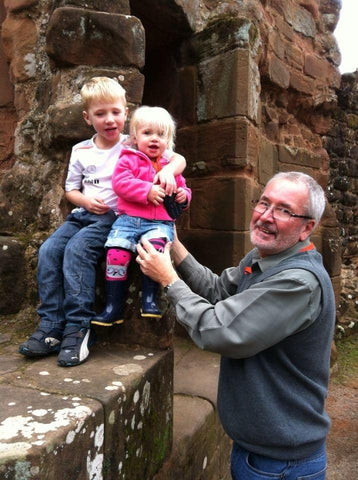
In June I’m taking part in the Jump for Hope which is a 10,000ft skydive. I’ve had to lose 1st 8lbs to be able to do the challenge and in six months I’ve gone from 13st 8lbs to 12st. I realised I was comfort eating and now don’t eat in the evenings. I changed the sizes of my portions too and that’s helped me shift the weight.
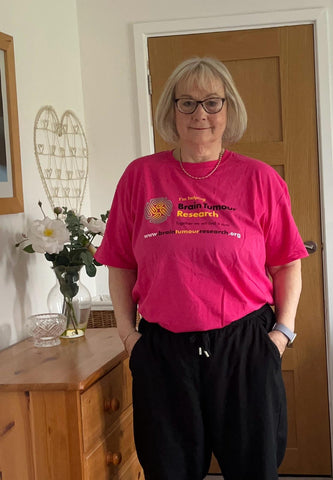
If Chris, was still alive he would take on this challenge with me and encourage me to ‘go for it!’ So I am doing this challenge in memory of my wonderful husband and best friend.
Jill Blakemore
April 2024
Brain tumours are indiscriminate; they can affect anyone at any age. What’s more, they kill more children and adults under the age of 40 than any other cancer... yet just 1% of the national spend on cancer research has been allocated to this devastating disease since records began in 2002.
Brain Tumour Research is determined to change this.
If you have been inspired by Chris’ story, you may like to make a donation via www.braintumourresearch.org/donate or leave a gift in your will via www.braintumourresearch.org/legacy
Together we will find a cure

